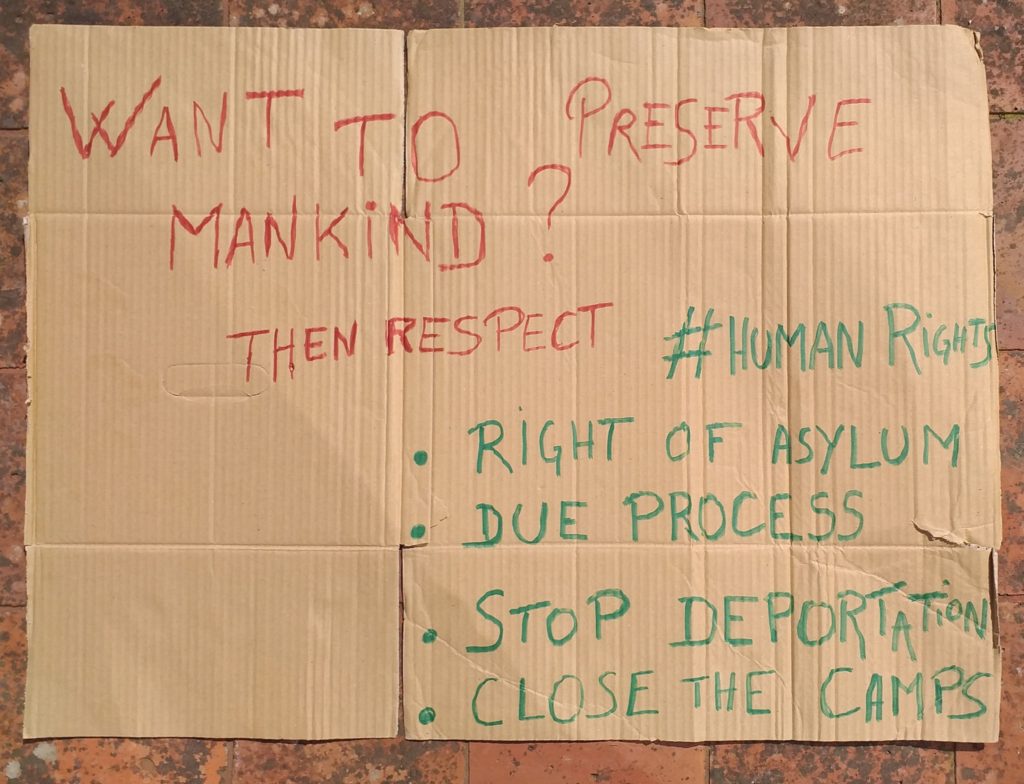On 12/03/2020, the Council of Ministers adopted, without any prior consultation, the much-trumpeted action plan for “holistically dealing with the increasing migration flows”. KISA expressed right from the beginning the conviction that the policies of “examination of manifestly unfounded applications within one month”, the designation of “safe countries of origin”, the “shortening of the time of examination of asylum applications” and speeding up of procedures with reducing the enshrined deadlines of recourse to judicial protection, the creation of closed detention centres for asylum seekers and speeding up of forced returns with the effective involvement of FRONTEX, not only violate the refugee law but they are also unfeasible in the absence of the required structures, the necessary human resources and the corresponding legal framework.

Today, especially under the present conditions of the COVID-19 pandemic, the action plan is no longer only unfeasible and illegal but it constitutes a substantial threat to public health of the whole population.
When physical distancing and voluntary self-isolation is the rule for almost all people, the government has decided and daily promotes the piling up and crowding of migrants and asylum seekers in detention and reception centres, thereby rendering them into centres of rapid and certain spreading of coronavirus.
At exactly the time when the rule of law needs to stand firm and the number of detainees / confinees to be limited to the absolutely necessary minimum or to be eliminated altogether, it has been decided to reopen all wings of the Menoyia Detention Centre, while new detainees are not transferred to the Menoyia Detention Centre but to various police stations, in conditions that have already been ruled by the ECtHR as inhuman and degrading. It has also been decided to “host” more than 600 people at Pournara, in conditions that violate the very decrees of the state for protection from coronavirus. At the same time, the Reception Centre for Asylum Seekers in Kofinou has been turned to a “closed centre”, without a single case of COVID-19.

In effect, with concentrating such numbers in detention and/or reception centres, of people who have not committed a crime and do not in any way threaten public order, there can be no guarantee as to the protection of public health as it is totally impossible to comply with the measures of the ministerial decrees for the protection of public health.
When administrative detention in many European countries is being limited, because of the infeasibility of the implementation of detention orders and, therefore, without any legal basis, Cyprus opts for the “solution” of detention and deportation, ignoring the short- and long-term consequences of detention that leads to nowhere.
And of course there is no reference to the living conditions of detainees and those “hosted” in these centres (please see (CPT standards and CPT statement of principles of COVID-19 of the Council of Europe).
When it is imperative to be prioritized, vulnerable groups within the most vulnerable group of detainees and refugees, they remain invisible. Pregnant women, children, persons with health problems and with disabilities have only one capacity, that of the “other”, the “foreigner” who must be distanced from “ours” and to automatically be piled up and confined along with hundreds of other people, that is to be exposed to guaranteed dangerous conditions.
Before it is too late and the spreading of the virus becomes uncontrollable, KISA considers that it is imperative to fully review the measures, taking into consideration the threat of coronavirus as well as the rule of law that Cyprus wants to maintain, and calls on the state to immediately review-
- The suspension of the administrative detention for deportation, in accordance also with the call of the Commissioner for Human Rights of the Council of Europe.
- The immediate closing down of the congested reception centres, especially of the “Pournara” Temporary Reception Centre» and the decongestion of the Reception Centre in Kofinou, by moving people to structures suitable for hosting small groups of people, in conditions of effective and equal protection from coronavirus.
- Strengthening the measures for coronavirus so as for these to be also adjusted to the needs and realities of migrants and refugees, including appropriate information in languages understood by them, and ensuring their access to health and hygienic services, which is not safeguarded today for most of them because, among others, their as yet unadjusted registration with GESY (National Health System), including the personal assessment of the health condition as well as the consequences of the sanitary crisis on the vulnerable groups of migrants and refugees with measures especially addressed to them.
- The disassociation of migration controls by the Police and the checks for complying with the measures against the spread of coronavirus and access to examinations and medical care of coronavirus victims.
- The inclusion of migrants and refugees in the measures for supporting the unemployed and other vulnerable groups, irrespective of their residence status.
Steering Committee




